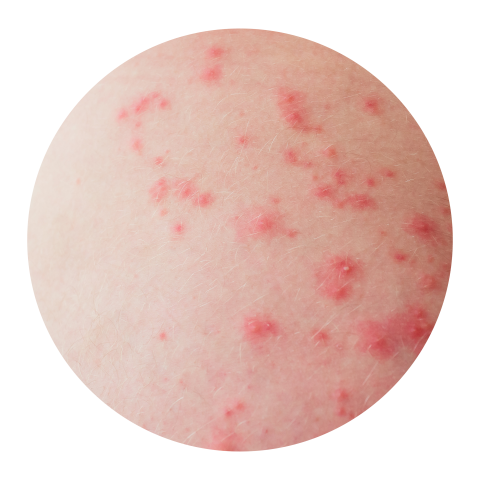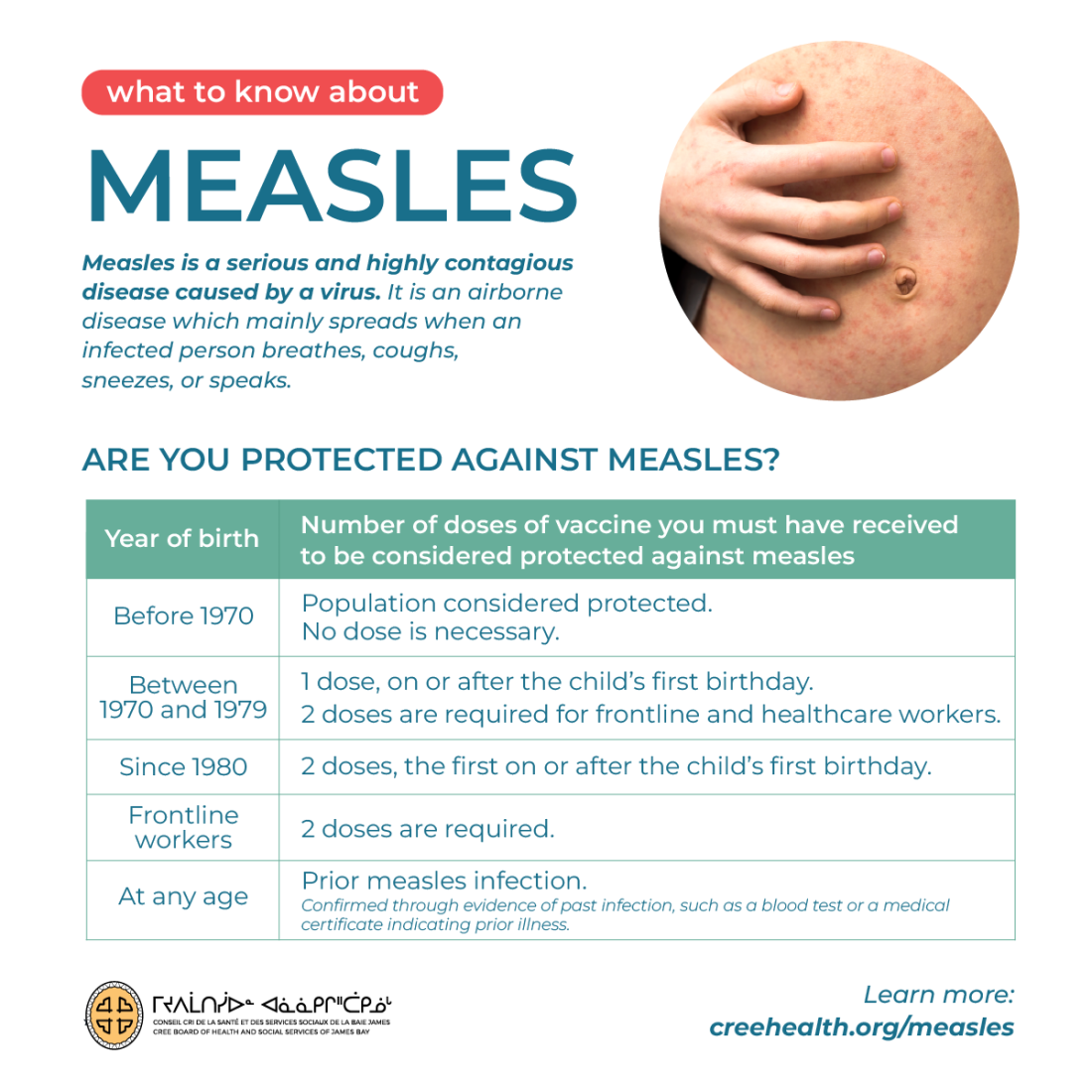Measles
Measles is a serious and highly contagious disease caused by a virus. It is an airborne disease which mainly spreads when an infected person breathes, coughs, sneezes, or speaks.

The main symptoms are
- High fever
- Coughing
- Nasal congestion
- Runny nose
- Red and watery eyes
- Sensitivity to light
- Skin rash beginning on the forehead, then extending to the face, neck, trunk, arms, legs, and feet (2-4 days after symptoms begin).
An infected person can spread measles to others even before knowing they have the disease—from four days before developing the measles rash through four days afterward. The illness can last 1 to 2 weeks.
It is caught by breathing in the same air as an infected person, even at more than 2 metres (6 feet away). The virus can stay suspended in the air for a few hours. Measles can also spread through direct contact with an infected person or contaminated objects.
People at highest risk of contracting measles are those who have not been vaccinated or who have not received all doses of the vaccine.
People at high risk of complications, when infected, are babies under the age of 1, pregnant women who are not adequately vaccinated against measles, and people with weakened immune systems.
About 1 out of 10 people must be treated in hospital.
Possible complications are
- Hearing and/or vision loss
- Pneumonia
- Brain infection (occurs in about 1 of every 1,000 cases)
- Pregnancy complications (ex. premature birth and low-birth-weight baby).
- Death (1 case in 3,000).
There is no specific treatment for measles. Basic care can be given to relieve the symptoms, for example, medication to bring down fever.
Hence the importance of making sure that we are vaccinated for measles.
Are you protected against measles?

- Vaccination with the MMR (measles, mumps, rubella) vaccine is the best way to prevent measles. It offers proven protection with a 99% success rate after two doses. Vaccination is recommended for people aged year and over
- If you have been identified as a contact, follow the recommendation of Public Health: you might need to isolate, receive an extra dose and/or other treatment
- Wash hands well and avoid sharing food, drinks, utensils, etc.
- All children or staff, including bus drivers, and volunteers diagnosed with measles should isolate at home during their contagious period, as recommended by the Public Health.
- Post-exposure vaccination will be offered to children and staff who have not received all required doses of the measles vaccine.
- People who refuse to get vaccinated or cannot get vaccinated will be removed from the childcare centre or school until the end of the outbreak.
If your child or another family member has symptoms of measles, keep them at home and call your local clinic or Hospital.
If you must go to the clinic or hospital, call before you go to let them know that the person might have measles. It is recommended to wear a mask.
Vaccination is the best way to be protected against measles.


